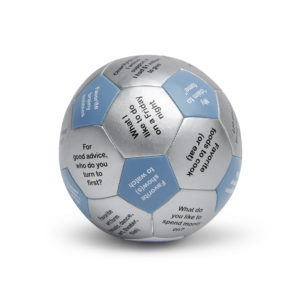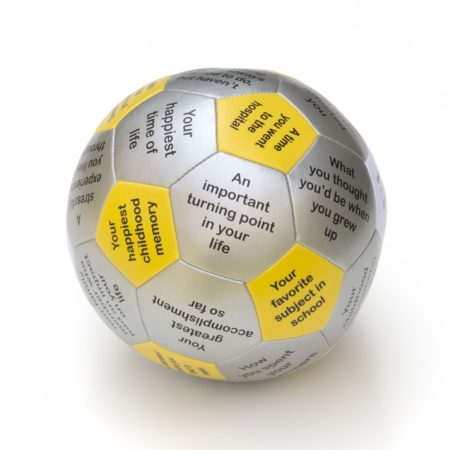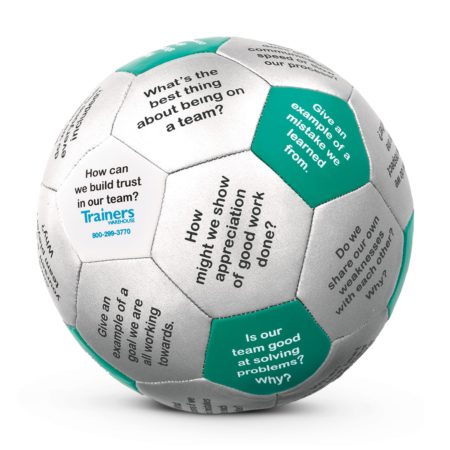Learning how to talk to each other again
After the most divisive political season in our nation’s history, I think we’re all trying to figure out how to move on. We talk about unifying our divided country, about building mutual support and repairing relationships, but have little idea how to do it.
The key to building relationships (or re-building them, as the case may be), has been and always will be through communication. We must start conversing again about topics that matter. “Conversing” means we’ll have two-way dialogues, where everyone makes an effort to ask questions, listen to answers, understand the diversity of our backgrounds and experiences, and respect differences. We must do our best to understand others’ perspectives with an open mind, so that we can together find common ground and mutually agreeable solutions to complex issues.
If we disagree, let us do so respectfully. Let us move away from black and white, and find a silver that suits us all. Yes, silver, not gray, because it’s so much more appealing and reminds us to look for “silver linings” in the clouds. Whether or not our leaders talk to each other with civility, we must. We must take it upon ourselves to set the tone for the discourse that we want in our companies, homes, and communities.
Finding our “Silver”
Figuring out what questions to ask at a time like this is tricky. In the past, I’ve found it useful to consider the level of intimacy and understanding you hope to achieve, using these four levels as a guide:
- LEVEL 1: Icebreaker questions – surface questions to stimulate casual conversation
- LEVEL 2: Common ground questions – find shared interests and build new relationships
- LEVEL 3: Getting to know you questions – probing prompts to get to the real you
- LEVEL 4: Deep-Dive questions – deeper discussions to build intimacy and understanding or to address specific challenges
If you want to steer clear of politics, starting with Level 1 questions will feel very safe, but won’t necessarily get you that far in building common understanding.
- Farthest place I’ve traveled

Common Ground ThumballBUY NOW
- Beautiful beach I want to see
- Animated film I’d view again
- Chinese food I always order
- Favorite candy treats
- Favorite nursery rhyme or fairy tale
- Museum I’d visit
- TV channels I like
- What makes me laugh
For folks who are just meeting each other or need to find shared interests and common ground, Level 2 questions can be a good start:
- What do you like to do on vacation?
- How do you spend free time
- Who are the most important people in your life?
- For good advice, who do you turn to first?
- Where I wish I lived
- Something new I’d like to try or learn
- What do you worry about?
[NOTE: these were drawn from the following Silver Series Thumball: Common Ground]
As you build up to Level 3 questions, you move a little deeper to understand others’ motivations, goals, personality, and the experiences that shape who they are. Discussion prompts might include:
 A non-family member who had an impact on your life
A non-family member who had an impact on your life- A proud childhood moment
- Your happiest time of life
- A stressful experience you lived through
- A time you got in trouble at school
- A time you went to the hospital
- An important turning point in your life
- The age at which you became an adult
- An experience that made you a better person
- Something you did that got you in trouble
[NOTE: these were drawn from the following Silver Series Thumballs: Shaped by Our Past and Getting to Know You]
Starting with a foundation of understanding and mutual respect and a shared agreement of ground rules (i.e. that you will focus on listening, speak only for yourself, etc.), you can delve into Level 4 questions:
- How should we manage disagreements?
- Give an example of a goal we are all working towards
 How can we prevent negative energy from bringing us down?
How can we prevent negative energy from bringing us down?- Which would be harder for you: looking different or feeling different?
- A behavior you encountered that you found disrespectful
- What would be hardest about being confined to a wheelchair?
[NOTE: these were drawn from the following Silver Series Thumballs: Team Dynamics and Diversity]
In the past, political questions may have been perceived as Level 2 or 3 questions, but with emotions running as high as they are today, we’d have to categorize them in Level 4. Here are some that might help you toward a path of mutual understanding–remember, the goal is to get each person to speak from their heart about their own fears and beliefs, staying away from the rhetoric shared by any candidate:
- How do your political beliefs differ from your parents?
- As you think about immigrants and our changing demographics, what’s your greatest fear?
- Do you share the same political beliefs as family and friends?
- What are your core values?
- What worries you most about our nation?
- What’s your greatest concern about health care and insurance?
- What new energy form are you most intrigued by?
- What modern convenience do you think is most harmful to our planet?
- Assuming that black lives DO matter and the Police play an important role in our communities, what would you do differently?
- With respect to the job market, are you most concerned about: your own job, the overall unemployment rate, salary and wages?
- How do you view the role of the USA in world?
- How do you want non-Americans to think of the US?
Opening our dialogue with questions like these will help Democrats, Republicans, Libertarians, Independents and others, folks with different beliefs, begin to understand what’s important to them–what they value and what they fear–without focusing on the poisonous rhetoric of the political candidates.
NOTE: Except for the political questions, all conversation prompts are available on the Trainers Warehouse website, where you will find our line of “Silver Series” Thumballs.


I found this blog to be very timely and very sensitively written. The question samples are excellent and provide practical starting points. I was especially impressed by the sensitively worded Level 4 questions about politics. Maybe if we all focus on answering them ourselves we won’t be so quick to condemn or “write off” any person, leader or group.
Thanks for posting it and in so timely a manner.
Linda